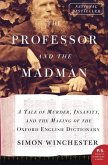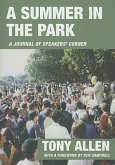Equal parts nostalgic, witty, self-serving, and frank, Connecticut Yankee is an entertaining and informative memoir of the state and a scholar who shaped it. Connecticut native, Yale graduate, Yale professor and dean, and finally, unlikely Governor of the State of Connecticut during the crucial Depression years, Wilbur L. Cross's autobiography tells a great American story. As a Yale professor, a writer, and an editor, Wilbur L. Cross devoted himself to the English language, and specifically to understanding how novels were capable of capturing the human condition. His autobiography, Connecticut Yankee is in many ways a novel itself. The protagonist is Cross and the plot is his education. Wilbur Lucius Cross was a most unlikely politician. A noted author and literary critic who had been a professor of English, editor of the Yale Review, and finally, Dean of the Yale Graduate School, his quiet character and almost poetic oration would seem at odds with the cut-throat world of state politics. But is was just this stoic demeanor and inquisitive intelligence, that would help him make a mark on Connecticut politics during his four terms of office, from 1931 to 1939. During his time as governor, he suffered the hardest years of the Depression and worked to implement President Roosevelt's New Deal, fought for the abolition of child labor, instituted a minimum wage, improved working conditions in factories, and guided the state's recovery from the devastation of the Great New England Hurricane. He also strove to reorganize the state government, and would help revitalize Connecticut's Democratic Party, which had been torn by internal strife. Cross was an excellent writer, and here-updated with a new foreword by Yale Law School graduate and author Justin Zaremby-is his compelling account of life from a childhood in the bucolic town of Mansfield, through the hallowed halls of learning at Yale University, to the highest office in Connecticut.
Bitte wählen Sie Ihr Anliegen aus.
Rechnungen
Retourenschein anfordern
Bestellstatus
Storno








